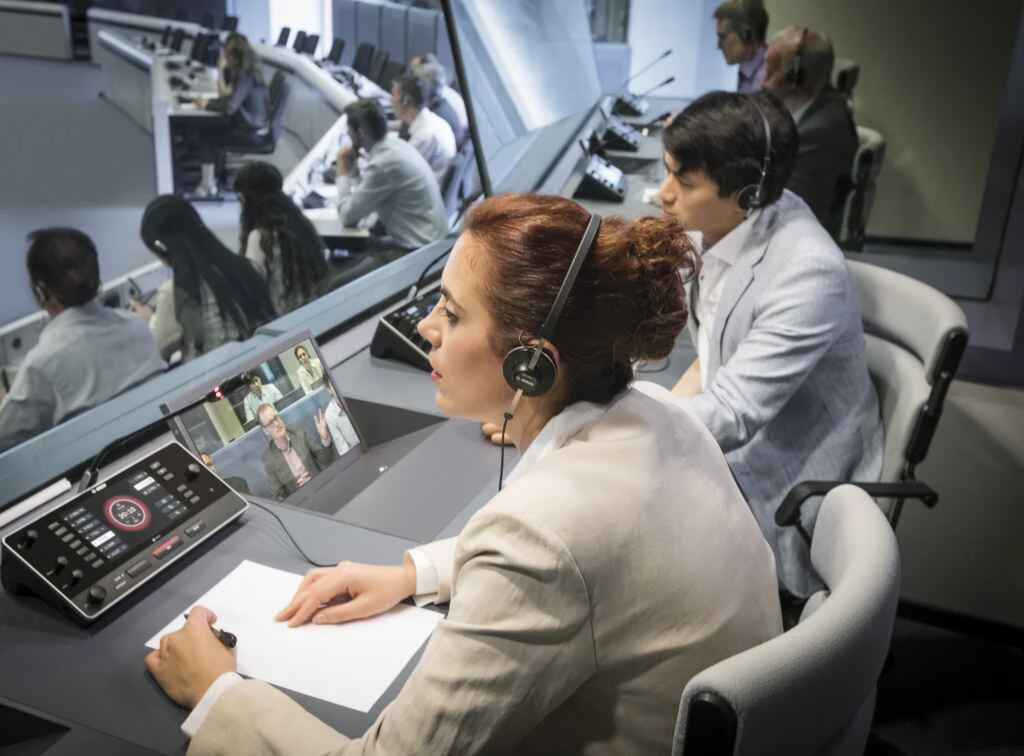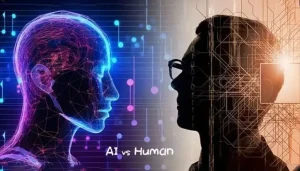In today’s interconnected world, interpreters are a vital part when it comes to bridging communication gaps across industries such as healthcare, legal, education, and corporate sectors. At TransLinguist, we recognize the growing need for well-trained, professional interpreters who can deliver accurate, culturally sensitive, and real-time language support.
This blog will explore the key skills and tools required to train modern interpreters and how TransLinguist supports this development.
Core Skills for Modern Interpreters
Advanced Language Proficiency
For interpreters, one of the necessary and main requirements is for them to be fluent in at least two languages possessing an in-depth knowledge and understanding of dialects, grammar, idioms and formal/informal speech patterns.
In addition to this, interpreters must possess expertise with respect to the vocabulary that is subject-specific whether it is medical, legal, business or technical. In addition to this, understanding and interpreting with respect to the context that the speech is being talked in is an essential skill to have for an interpreter.
Real-Time Listening and Processing
Interpretation takes place in real-time unlike translation and is therefore, a comparatively faster and a smoother process. This is why interpreters are required to understand the speech quickly, process it and hence, provide interpretation accordingly without loss of any context or emotional tone.
Moreover, environments like courtrooms, international conferences and hospitals require emotional strength by interpreters which is why techniques like memory drills, shadowing and dual-task exercises help increase the resilience of interpreters required for longer assignments.
Unlike translation, interpreting happens in real time therefore, they must quickly process,
Cultural Sensitivity and Awareness
It is an essential element for interpreters to be culturally aware with respect to their language pairs. A certified and professional interpreter will know how to deal with varying cultural nuances as well as avoid any miscommunication and ensure to maintain the element of respect throughout without any compromise.
Cognitive Agility and Memory Skills
When it comes to cognitive agility and memory skills, it is important for interpreters to remember information of complex nature and be able to deliver it accurately. Good preparation for this may include techniques such as taking notes as well as training memory.
Continuous Professional Development (CPD)
It is important for clients to be able to trust the interpreters with respect to their professionalism. This can be achieved through valid credentials being possessed by the interpreters that can be verified from organizations such as AIIC (International Association of Conference Interpreters) and ATA (American Translators Association). This allows clients to build the level of trust with the interpreters allowing them to take over their assignments effectively.
Modern Tools That Enhance Interpreter Training
In today’s era, technology plays a vital role in every aspect of life. This also includes interpreter training and services delivery:
- Remote Interpretation Platforms (RIPs): Platforms like TransLinguist Interactive and Zoom allow interpreters to provide services virtually without the hindrance caused by geographical barriers.
- Speech Recognition Software: Programs like Otter.ai help interpreters to improve their listening and comprehension speed.
- Terminology Management Tools: Glossary builders and CAT tools assist in maintaining consistency and accuracy as well as stay up-to-date.
- AI and Digital Resources: Exposure to AI tools prepares interpreters for future hybrid workflows.
At TransLinguist, our interpreters are trained in these tools to ensure smooth and efficient communication in any setting.
Why Choose TransLinguist?
At TransLinguist, we provide access to:
- Over 8,000+ certified professional interpreters globally.
- Services in numerous language pairs
- Industry-specific expertise in healthcare, legal, corporate, and more
Our interpreters are professionally trained and quality checks are conducted to ensure professionalism, accuracy, and cultural sensitivity in every assignment.
Conclusion
Training modern interpreters requires more than just language fluency. It demands cognitive agility, ethical integrity, technological expertise, and cultural awareness. As global communication continues to expand, investing in skilled interpreters is essential for effective, inclusive, and respectful interaction.
At TransLinguist, we are committed to providing top-tier interpretation services that meet the evolving needs of our clients and communities.
Contact Us today to learn more about how we can support your multilingual communication needs!
FAQs
What are the modern tools of translation?
Computer-aided technology, Machine translation. Examples include MateCat, SmartCat, Trados Studio, and WordFast, among others. DeepL Translate and Google Translate, among others.
What are interpreter skills?
Highly proficient in both English and the other language. Impartiality. Able to accurately and idiomatically turn the message from the source language into the target language without any additions, omissions, or other misleading factors that alter the intended meaning of the message from the speaker.
What is the concept of an interpreter?
An interpreter is an active element of a computer system that performs computations by sequentially executing program instructions based on an instruction reference, repertoire, and environment reference.
What are the modern theories of translation?
An interpreter is an active element of a computer system that performs computations by sequentially executing program instructions based on an instruction reference, repertoire, and environment reference.



